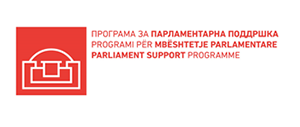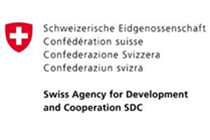

PARLIAMENT SUPPORT PROGRAMME
The Swiss-supported Parliamentary Support Programme (PSP) aims to assist the Assembly in gaining institutional credibility and public trust by safeguarding citizen interests and needs and by more consensus-oriented and inclusive debate and decision-making.
The PSP will support the Assembly of the Republic of North Macedonia (the Assembly) independence efforts through consensus-building, structural reform, and capacity building in the Assembly’s institutional development; its legislative and oversight roles; and its institutional transparency and accountability. Specific PSP goals include:
- Institutional checks and balances are strengthened
- The workflow of Parliament is more efficient
- The Parliament exercises political control and oversight of the Government and other public offices
- The Parliament adopts quality laws based on sound analytical information following a predictable parliamentary calendar
- The Parliament uses improved regulatory framework to engage citizens
- The Parliament better informs citizens, including marginalized groups, on its work
- The Parliament actively engages and communicates to citizens/marginalized groups and CSOs
- Citizens, including marginalized groups, have increased knowledge of their civic rights and responsibilities in the policy making process
The PSP will be implemented by the National Democratic Institute, drawing on Macedonian expertise through the Center for Change Management, and the Institute for Democracy Societas Civilis Skopje to support the Assembly’s strategic planning; human resources management reforms; improved regulatory impact assessment and procurement processes; commitment to open data, and, by gauging public opinion and monitoring reform efforts, including greater civic engagement in policy-making processes.
PSP interventions will also draw on institutional expertise from the Swiss Federal Assembly, Estonian Riigikogu, European Parliament, German Bundestag, Latvia-based ManaBalss.lv, and legislative expertise from other European Union member states to reach political consensus, strengthen human resources practices, improve Assembly information and communication systems, fiscal scrutiny practices and parliamentary security. Specialized assistance will also include support to the Parliament’s television channel.
Planned Project Duration: 01.07.2018 – 31.12.2029
Planned Project Budget: CHF 11 million
Swiss Support to the Assembly
Switzerland is supporting the Assembly of Republic of Macedonia since 2010 in the introduction of a new department of the Parliamentary Service of the Assembly – the Parliamentary Institute. The primary function of the Parliamentary Institute is to provide quality and impartial research and analyses for the needs of the MPs in their review and debate of laws and the oversight of their implementation. In addition, it will provide modern archive, library and internal training services for the Parliament as well as outreach activities to bring Parliament closer to citizens.
The main aim of the project is to ensure timely, impartial, objective and accessible services and analytical information for MPs, thereby contributing to a more fact-based debate and higher quality of laws. Furthermore, through introduction of innovative services of the PI, many of which are e-services and provided in four languages – Macedonian, Albanian, English and French, the Assembly will further modernise its work, increase its transparency, improve its exchange of information with other European parliaments and enable greater access for citizens to the Assembly.
In its current phase, the project is implemented by the Assembly of Republic of Macedonia, with advisory support from the National Democratic Institute of International Affairs. Expertise from parliaments throughout Europe (primarily from Czech Republic, Slovakia and Switzerland) and from the US has been provided in the frame of the project. The current Swiss project support to the Assembly is in form of earmarked on-budget support to the Budget of Republic of Macedonia based on the Parliamentary Institute’s Strategic Plan.